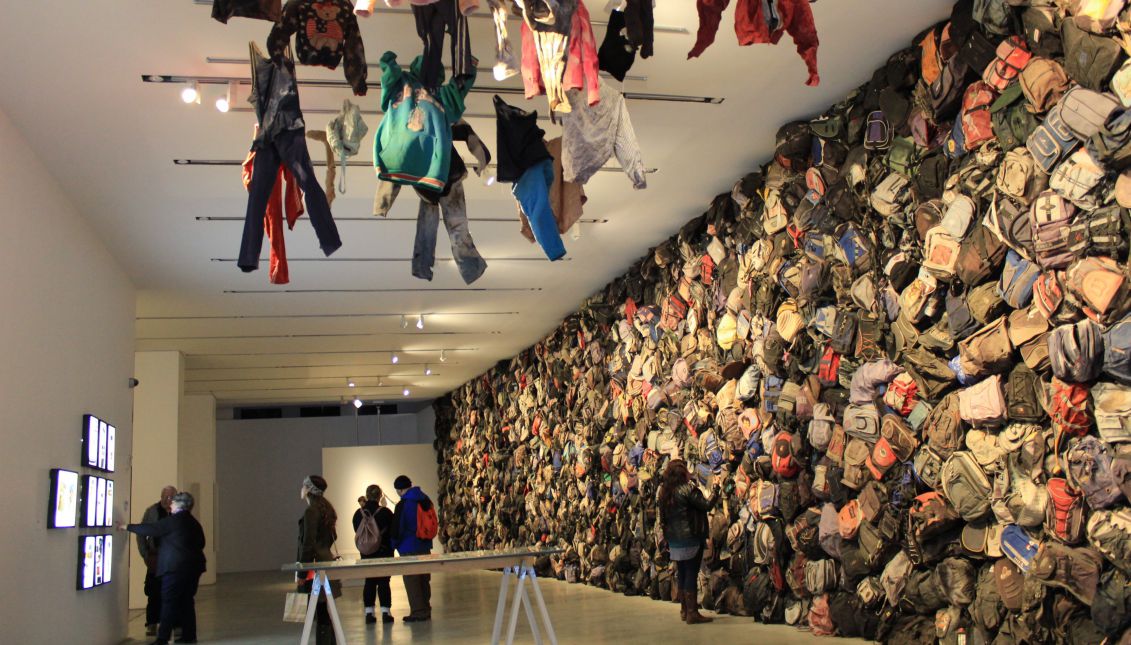
"Wall of backpacks" set up as immigrant exhibit in opposition to Trump
A "wall of backpacks" abandoned by dozens of migrants who crossed the Sonoran Desert trying to reach the United States is on display - and is still being added…
A "wall of backpacks" abandoned by dozens of migrants who crossed the Sonoran Desert trying to reach the United States is on display - and is still being added to - as an exhibit in New York in answer to the immigration policy of President Donald Trump.
Each backpack represents a person who crossed into the US, and although most of them made it, some could have died, photographer Richard Barnes, one of the creators of the "State of Exception" exhibit at the Parsons School of Design until April 17 after being on tour for five years, told EFE.
Along with the backpacks, other items are being added to the exhibit to continue developing the "footprint" of undocumented migrants, including torn clothing, testimonials and snapshots taken by the migrants themselves on their dangerous trek full of fear and uncertainty, but with the hope of a better life at the end of the road.
State of Exception is based on a research project by University of Michigan anthropologist Jason de Leon, who since 2009 has been collecting objects and interviewing almost 1,000 people who traversed the frontier zone between Mexico and the US or who work in the area.
The exhibit takes its name from a theory by Italian philosopher Giorgio Agamben regarding the legal vacuum created along borders: "Migrants are struggling against a government and some laws, but they have no rights," the researcher says.
According to De Leon, the art project gives scientific data a "new chance to speak" about these migrants' stories to "people who are not going to read an anthropology book or have no interest in immigration."
Puerto Rican Mignaliz Vega this week went with several friends - all Latin Americans - to her local church in the nearby state of Delaware, all of them familiar in one way or another with the journey with no guarantees that many undertake to enter the US illegally.
RELATED CONTENT
"Fortunately, I didn't have to cross," she said, although she has listened to the difficulties members of her community faced on their trips to the border and across it.
They look over the dozens of backpacks, some with no further information about the lives of their original owners than the patch or symbol of their favorite Mexican soccer club, others whose owners wrote their names in white correction fluid on their rucksacks.
"It really affects people who see it, but for me the important thing is to put the backpacks into a space with the voices of the migrants," said De Leon, referring to the fragments of interviews being broadcast from hidden loudspeakers.
From underneath or within the backpacks comes the voice of a woman who recounts her experience with a "coyote" - a people smuggler.
In a glass display case, along with cans and bottles weathered and baked by the desert sun, mass cards of the Virgin of Guadalupe, Mexico's patron saint, and assorted other items, a baby's bottle stands out.
The organizers of the exhibit agreed that since Trump's election victory, concern has spread among the migrants.
"His policies have worked because they are afraid," said Barnes.










LEAVE A COMMENT: